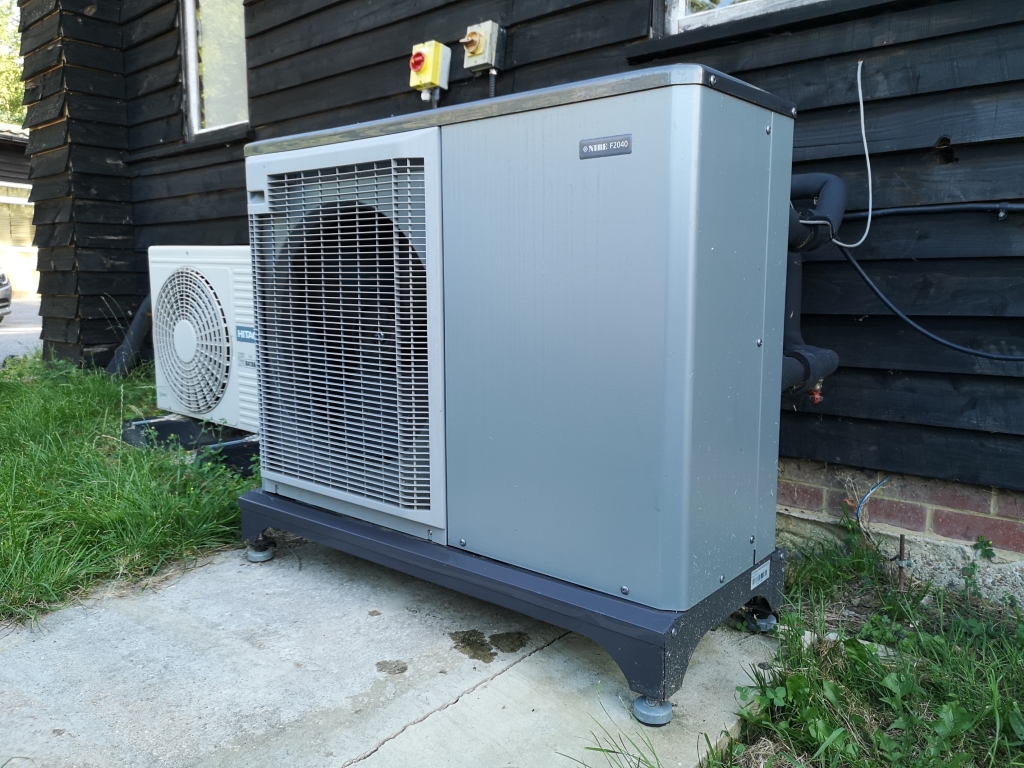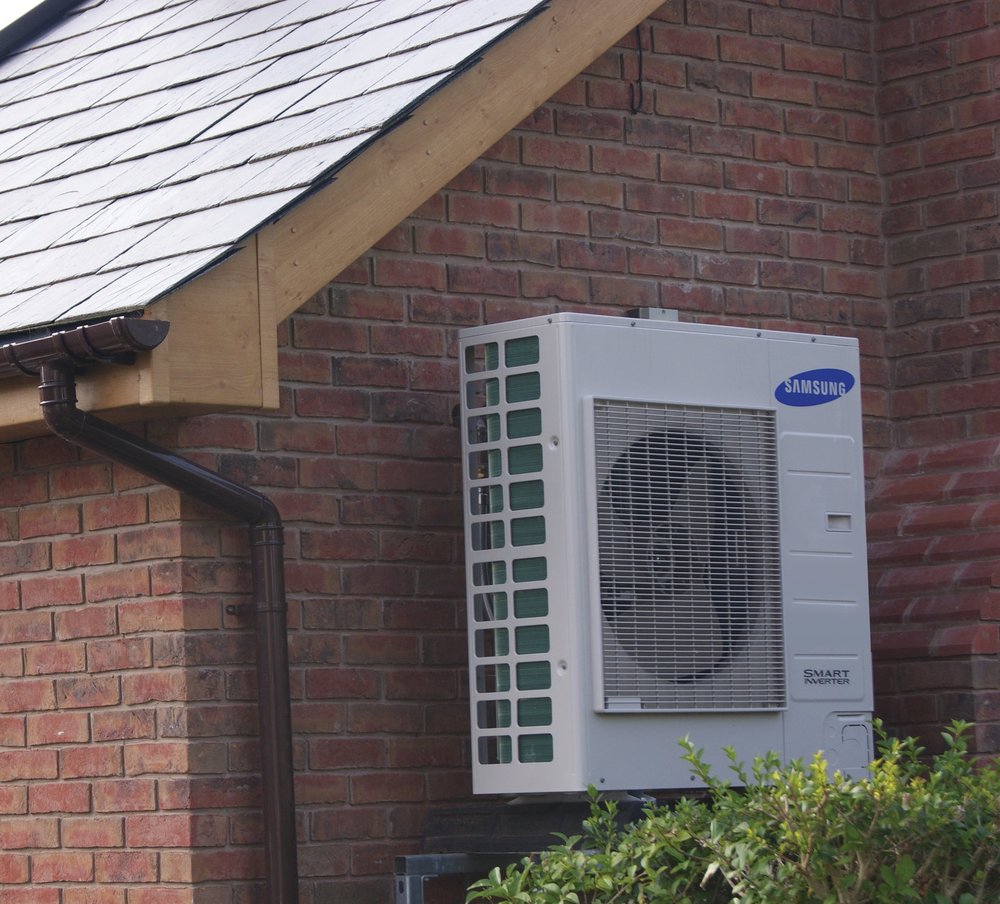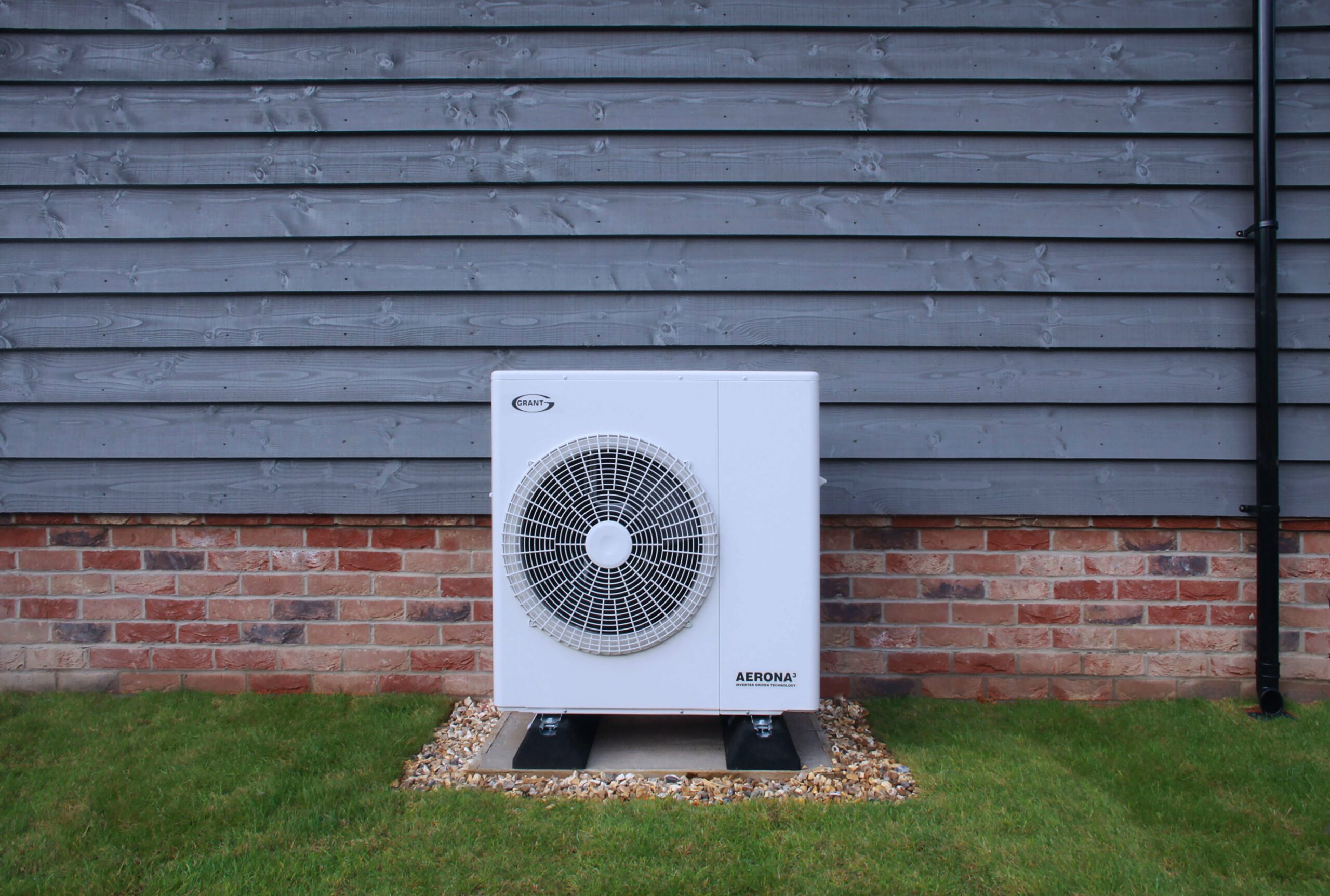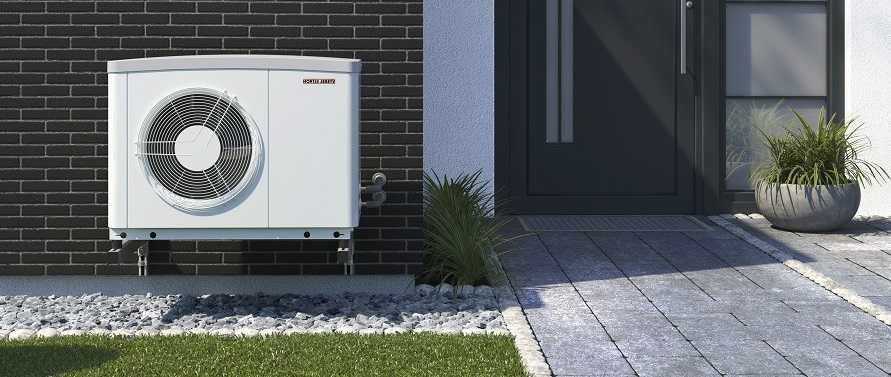Scientists and inventors are constantly trying to come up with greener ways to heat our homes. Boilers are getting more energy efficient almost every year but they’re no longer necessarily the best way to run a central heating system. Air source pumps serve as an alternative way to heat your home and could be the ideal solution if you want to generate your heat and potentially save money on your energy bills. In this article, Linquip will give a complete answer to the question, “ what are air source heat pumps? ”. Read on to find out more about the pros and cons of air source heat pumps, so you can decide whether getting one is the right decision for you.
What Are Air Source Heat Pumps?
Air source heat pumps (ASHPs) are a kind of renewable energy technology that absorbs heat from the outside air to heat your home and hot water. They can still extract heat when air temperatures are as low as -15°C.
Air source heat pumps need electricity to run, but because they are extracting renewable heat from the environment, the heat output is greater than the electricity input. This makes them an energy-efficient method of heating your home.
How Do Air Source Heat Pumps Work?
The process through which an air source heat pump work is described below.
- The unit absorbs heat from the air into a liquid refrigerant
- This fluid is turned into gas in the process
- Using electricity, the pump compresses this gas, heating it up
- This heat is transferred into your home’s heating system, your radiators, underfloor heating, or warm air convectors and hot water
- Lastly, as the heat transfers, the gas condenses back into a liquid and the cycle begins again
Different Types of Air Source Heat Pumps
- Air-to-water heat pumps
- Air-to-air heat pumps
There are two main types of air source heat pumps that are explained below.
-
Air-to-water heat pumps
Air to water heat pumps take heat from the outside air and transfer it to a water-based system. The created heat can be used for space heating or as a hot water supply for the house. Air to water heat pumps is among the most efficient air source heat pumps on the market.
This type of heat pump works best in moderate climates. The efficiency of an air-to-water heat pump is most optimal at 7°C, as opposed to dry and cold locations, where outside temperatures fall below -20°C. Keeping the working principles of an air-to-water heat pump in mind, the decline in temperatures will affect the operating efficiency.
-
Air-to-air heat pumps
Air to air heat pumps draw in air from the outside, which then travels through a compressor that extracts the heat from the air, to then pump it through the house to heat it. This technology can also be reversed to cool the house in the summer months. It uses the principles of vapor compression refrigeration to absorb heat in one place, and release it to another.
Air to air heat pumps is thought to be the most effective in terms of the heat energy output per kWh of electricity they consume. A specific yield indicator known as COP is used to measure the efficiency rate of a heat pump. An air-to-air heat pump can generate up to 4.5 times the energy it consumes.
The Cost of Air Source Heat Pumps
The cost of an air source heat pump installation lies between about £7,000 and £9,000, whereas the running costs will be a small fraction of your present heating bill. However, the actual savings in heating varies depending on the size of your house, how well insulated it is, the type of fuel you previously used, and the age of your central heating boiler.
Several factors can affect pricing a new heat pump, including the weather in the home’s location and any installation-related costs. Mitsubishi air source heat pump prices range from $1,405 to $3,390 for the unit only. With installation, costs can reach $3,500 to $5,890.
Air Source Heat Pumps Advantages
ASHP has some advantages that are as follows.
-
Reduced energy bills
Air source heat pumps are highly efficient heating systems that have the potential to lower your energy bills depending on your current heating system.
-
Earn money through the RHI
The Renewable Heat Incentive which is part of an air source heat pump grants 2020, pays homeowners that have invested in renewable technologies. You could be paid quarterly over 7 years which could potentially see you earn back the initial costs. It’s worth noting that only air-to-water heat pumps are eligible, not air-to-air heat pumps, and the scheme will close in March 2021.
-
Green heating solution
Unlike gas boilers, an air source heat pump does not produce carbon when operating. It does use a small amount of electricity to run, but this can be reduced further by installing solar PV panels so it runs on clean electricity. You should also consider switching to a renewable energy supplier.
-
Operates all year
You can make use of your air source heat pump all year round thanks to many models being able to operate in very low temperatures. During the summer, an air-to-air heat pump can be used to circulate cold air through the home to help cool everyone down.
-
Easily maintained
Heat pumps are often referred to as “fit and forget” technology as they require very little maintenance and can be left alone to heat your home. It’s recommended to have the appliance serviced annually to make sure it’s operating well.
-
Lengthy lifetime
The operating life of an air source heat pump varies depending on the model you have installed but many can last for up to 20 years, with some even stretching as far as 25 years.
Air Source Heat Pumps Disadvantages
While an air source heat pump could be saving you a large amount of money each year through reduced energy bills, there are air source heat pump disadvantages to consider.
-
Retrofit installation can be difficult
Depending on the type of property you have, it may be difficult to install an air source heat pump system without significant changes which could be costly and disruptive. Some properties such as flats which do not have outside space, or do not have space for a hot water cylinder, will not be suited to air source heat pumps.
-
Operating noise
Air source heat pumps can make noise while operating, but it must be said that it is not generally considered to be a problem by homeowners living with heat pumps. If you are concerned about potential noise issues, your installer should be able to install the heat pump away from your main living areas and bedroom.
-
Cost more to run than A rated boilers
Air source heat pumps use a small amount of electricity to run, but electricity is 3-4 times more expensive than gas per unit. If you have an A rated boiler which is working well, replacing it with an air source heat pump could actually increase your energy bills.
-
Reduced efficiency in winter
The colder the air outside, the harder the heat pump has to work to extract heat. For this reason, heat pumps will use more electricity during the winter making them less efficient.
-
Home needs to be well insulated
As air source heat pumps produce hot water at a lower temperature than boilers, the property needs to be well-insulated to make it an efficient system.
-
May need new radiators or underfloor heating
The lower temperature of the water also means that many homes will need to install larger radiators or underfloor heating to increase the surface area of the heat delivery system.
-
Requires outside space
You need to have outside space for the heat pump itself, including a good amount of space around the unit to ensure it has an adequate supply of air. You will also need space for a large hot water cylinder inside the home. If the outside unit is placed somewhere where it will get a lot of sunlight the ASHP won’t have to work as hard. So, now you know the answer to the question, “what are air source heat pumps?”. If you enjoy this article in Linquip, let us know what you think by leaving a reply in the comment section. We will be more than glad to have your viewpoint on the article. Is there any question we can help you through? Feel free to sign up on our website where our experts are prepared to provide you with the most professional advice.
Buy Equipment or Ask for a Service
By using Linquip RFQ Service, you can expect to receive quotations from various suppliers across multiple industries and regions.
Click Here to Request a Quotation From Suppliers and Service Providers
Read More on Linquip






